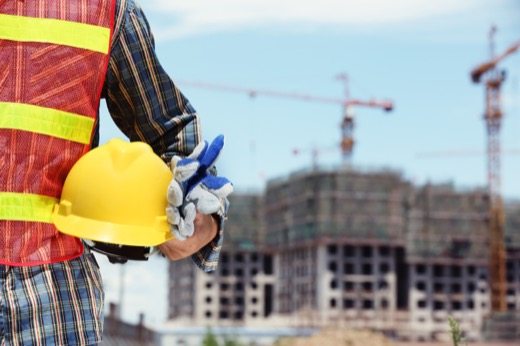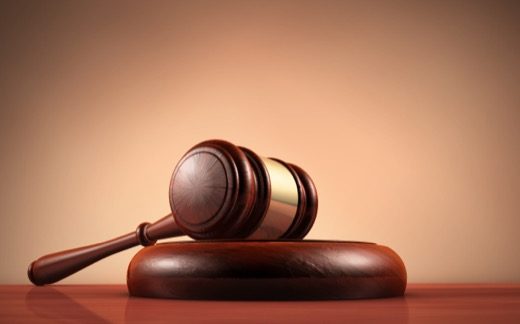Construction Hazards, Accidents, Injuries in Florida
The construction industry accounted for 899, or 20.5 percent, of 4,386 worker fatalities in 2014. In other words, one in five worker deaths last year were in construction. The “Fatal Four” leading causes of private sector construction worker deaths were:
Falls (39.9%)
Electrocution (8.2%)
Struck by object (8.1%)
Caught-in/between (4.3%)
OSHA found that of the 10 most frequently cited safety violations, three were particular to the construction industry:
Fall protection, construction
Scaffolding, general requirements, construction
Ladders, construction
A construction worker involved in a work-related accident may have a claim against the general contractor or owner of the construction site. Several states have laws under their labor code that address the proper handling of construction site hazards such as scaffolding and cranes. Such laws specify the degree of care that managers must maintain on sites and whether safety training is required, and provide that injured workers can sue the property owner or general contractor when the standards are not met.
Additionally, architects, contractors, engineers, and equipment manufacturers may all be liable when an accident occurs. The general contractor and subcontractors are required to take appropriate safety measures to ensure that the site is reasonably safe. They are obligated to warn workers of hazards on the site, hire trained and safety-conscious employees, and monitor the quality and effectiveness of appropriate safety specifications.
Manufacturers of scaffolding, cranes, power tools like nail guns, ladders, and heavy equipment, also may be liable for designing and manufacturing faulty or defective products.
A worker injured in an accident on a construction site may be entitled to workers’ compensation benefits. States require employers to purchase workers’ compensation insurance to provide compensation to employees who suffer a work-related illness or injury. While undergoing treatment and recuperating, the worker can receive benefits to pay for medical expenses and lost wages.
An injured worker also may want to pursue other parties connected with the construction job in a personal injury cause of action to obtain compensation for medical expenses, lost wages, and other damages.
Worker’s compensation
Workers’ compensation is a state administered insurance program that employers are required purchase to provide compensation to employees who experience a work-related illness or injury. Workers are compensated for any out-of-pocket medical expenses and any wages lost while the worker undergoes treatment and recuperates.
Generally, an employee who is injured on the job can successfully apply for workers’ compensation benefits without regard to who may have been at fault—the employee, employer, coworker, or customer. The compensation paid may be considered in lieu of damages the worker may be entitled to if he or she were to sue in court.
OSHA Protections
The provisions of the Occupational Safety and Health Act ensures safe and healthful working conditions for workers by setting safety standards, training, education, and assistance.
Employers must provide a workplace that is safe and without serious hazards. Employers are required to comply with OSHA safety and health standards, and identify and correct any safety and health problems. OSHA applies to most private sector employers and their workers and some public sector employers and workers.
OSHA outlines a process for eliminating or reducing hazards and specifies that employers should make feasible changes in working conditions such as changing to safer chemicals, arranging equipment or facilities to trap harmful fumes, or installing ventilation systems to clean the air rather than rely on protective gear such as masks, gloves, and earplugs.
OSHA states that workers have the right to:
Information and training about hazards, methods to prevent harm
Information explaining the OSHA standards that apply to their workplace
Be informed of results from tests and monitoring that measure hazards in the workplace
Access to records of injuries and illnesses that occur in worksite
Access to their workplace medical records
Requesting that OSHA have their workplace inspected
Participate in an OSHA inspection and speak with the inspector
File a complaint asserting retaliation or discrimination by the employer in response to a request for an inspection
File a complaint if punished or otherwise retaliated against for whistleblowing as defined under the federal laws
Workers can file a complaint with OSHA asking for an inspection of the workplace if they believe there is a serious hazard or have reason to doubt their employer is following OSHA standards. A worker can tell OSHA to keep his or her identity secret.
OSHA protects workers who report safety issues, request an OSHA inspection, or file a complaint with OSHA from employer discrimination, including protection from retaliatory acts such as:
Firing or laying off
Blacklisting
Demoting
Denying overtime or promotion
Disciplining
Denial of benefits
Failing to hire or rehire
Intimidation or making threats
Adverse reassignment
Reduction in pay or hours
OSHA can assess a maximum penalty of $7,000 for each serious violation and $70,000 for a repeated or willful violation.
Florida does not have its own OSHA plan, so Florida employers follow federal construction safety regulations.
Environmental Safety
The Environmental Protection Agency is a federal agency whose stated mission is to “protect human health and the environment.” The agency lists air, climate change, green living, chemicals and toxics, pesticides, health and safety, land and cleanup, waste, emergencies, and water among its concerns.
The agency conducts environmental assessment, research, and education, and enforces standards under a host of environmental laws. The EPA addresses topics of environmental concern such as acid rain, climate change, asbestos, greenhouse effect, and more. Its purview encompasses sectors such as:
Construction
Agriculture
Automotive
Electric utilities
Oil and gas extraction
Transportation
EPA enforcement powers include fines, sanctions, and other measures. The agency works with industries and government through voluntary pollution prevention and energy conservation programs. The agency’s Office of Enforcement and Compliance Assurance vigorously pursues civil and criminal enforcement in serious water, air and chemical hazards pollution situations.
Consult an Attorney
If you have been injured while working or visiting on a construction site or suspect you may have been exposed to hazardous construction materials, call for a free consultation with the personal injury attorneys at Madalon Law. The determined Florida workers’ compensation claim attorneys at Madalon law are experienced in construction injury law and will fight for your rights. We are based in Fort Lauderdale and serve clients throughout Florida. Let Madalon Law fight for you.














